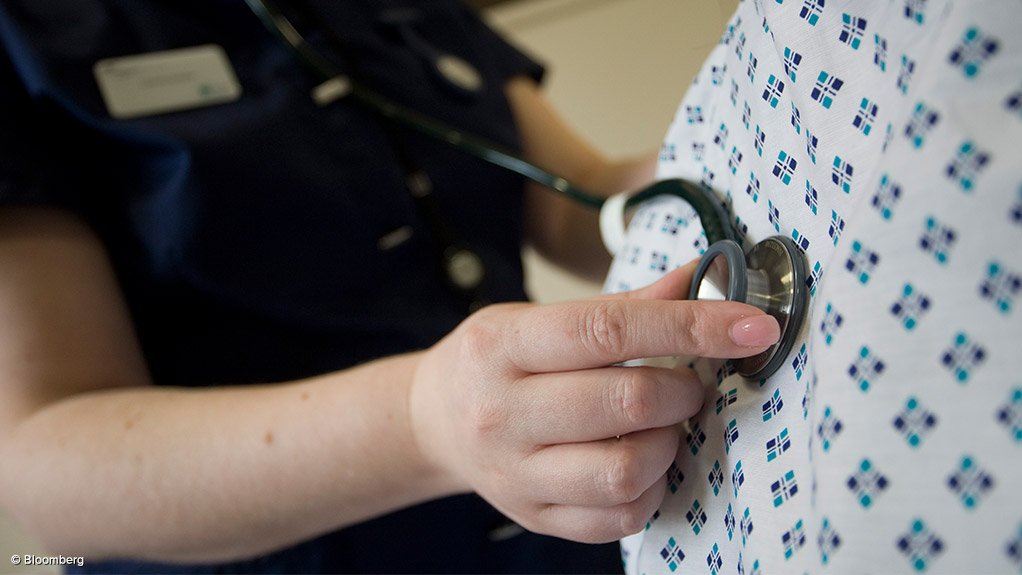/ MEDIA STATEMENT / The content on this page is not written by Polity.org.za, but is supplied by third parties. This content does not constitute news reporting by Polity.org.za.
On 28 August 2023, the Ministry of Health in South Africa, the Africa Centre for Disease Control and Prevention (Africa CDC), Africa Health Business and the South African Chapter of the BRICS Business Council co-hosted a successful dialogue on the margins of the BRICS summit to deliberate on a potential African Union and BRICS framework of cooperation for Pandemic, Preparedness, Prevention, Response and Recovery (3P2R).
The meeting brought together BRICS member states- including a fortuitous presence of the newly invited members, Ethiopia and Egypt- business, civil society, development finance Institutions, global health agencies and AU specialised agencies (AUDA-NEPAD, AfCFTA, ARC Group).
The dialogue sought to elicit a collaborative framework for AU and BRICS 3P2R that is actionable and implementable by tabling concrete suggestions, drawing from the AU and BRICS collective experiences of dealing with COVID-19 and other pandemics, identifying the existing capabilities and acknowledging the gaps that would need to be closed for adequate pandemic preparation and response.
Stakeholders acknowledged that many fora are dealing with global and regional pandemic prevention, preparedness, response and recovery (PPPR), including the Intergovernmental Negotiating Body for the Global Pandemic Accord.
However, they highlighted the reality of the shifting centers of global power, pointing out that the expanded BRICS family now represents 4,8 billion people, which is over half of the global population. Increasing human and animal interconnectedness, climate change and an increasing frequency of infectious disease outbreaks mean that the AU and BRICS’ ability to contain infectious diseases has a fundamental bearing on global health security.
The realisation of this growing responsibility compelled AU and BRICS stakeholders to convene and begin a process towards a declared collaborative framework.
In the interest of pursuing equitable and timeous access to medical countermeasures in the event of the next pandemic, participants acknowledged the merits of the “Johannesburg Process” in providing an informal platform for stakeholder engagements on an interim medical countermeasures’ coordination mechanism.
The “Johannesburg Process” was seen as an effective complementary tool contributing to the work of the World Health Organization and other formal processes.
Participants were further encouraged by the collective capabilities identified in medical and digital technologies, human resource potential (particularly in Africa), and pharmaceutical manufacturing. For instance, it was observed that the Developing Countries Vaccine Manufacturing Network (DCVMN), which is comprised of manufacturers from BRICS member states, contributed to 60% of the COVID-19 vaccine products. The meeting considered the merits of opening-up the entire expanded BRICS and AU market to all pharmaceutical manufacturers in the BRICS and AU regions.
Dr Stavros Nicolaou, member of the BRICS Business Council stated, "The COVID-19 pandemic exposed significant and vast global health inequities, particularly on the African continent and unnecessary lives and livelihoods were lost, with African post pandemic economic recovery still proving to be challenging. Collaborative efforts across the African and BRICS geographies can enhance surveillance, research, infrastructure and resource allocation to ensure a swift and coordinated response to future pandemics underpinned by a resilient African pandemic prevention, preparedness and recovery system."
Stakeholders also acknowledged that the inequities that persist in many low- and middle-income countries, fragile health systems and inadequate financing for 3P2R for the AU and BRICS families were a threat to pandemic preparedness and overall global health security. More work must be done to diversify manufacturing, support Africa’s manufacturing targets, ensure primary health care is fully developed as a foundation for pandemic preparedness, and to support last-mile delivery. The convening emphasised the importance of placing people and communities at the heart of all 3P2R deliberations.
Some concrete actions that were tabled were the necessity of predictable 3P2R financing by establishing a BRICS PPPR fund through the New Development Bank (commonly referred to as BRICS Bank) and the need to convene at the Conference on Public Health in Africa (CPHIA 2023) to agree on an AU and BRICS cooperative framework, inviting the newly announced additional members of BRICS and all the AU member states to deliberate on a proposed collaborative framework.
“Emerging in the wake of a recent global pandemic, this dialogue arrives at a pivotal juncture. It underscores a collective need to fortify health security and adaptability, extending beyond respective national boundaries,” said Dr. Jean Kaseya, Director General of Africa CDC.
Minister of Health, Dr Joe Phaahla said, “as BRICS Member States, we need to solidify our efforts to promote digital health technologies across our health systems to strengthen sharing of information that may be useful for PPPR. At country level, there is a commitment to develop and implement legislative measures for PPPR. I am glad that BRICS member states have reaffirmed and committed to implement global, regional, and national actions to strengthen pandemic prevention, preparedness and response, and fully address the direct and indirect consequences of current and future pandemics.”
Issued by Department of Health
EMAIL THIS ARTICLE SAVE THIS ARTICLE ARTICLE ENQUIRY
To subscribe email subscriptions@creamermedia.co.za or click here
To advertise email advertising@creamermedia.co.za or click here











